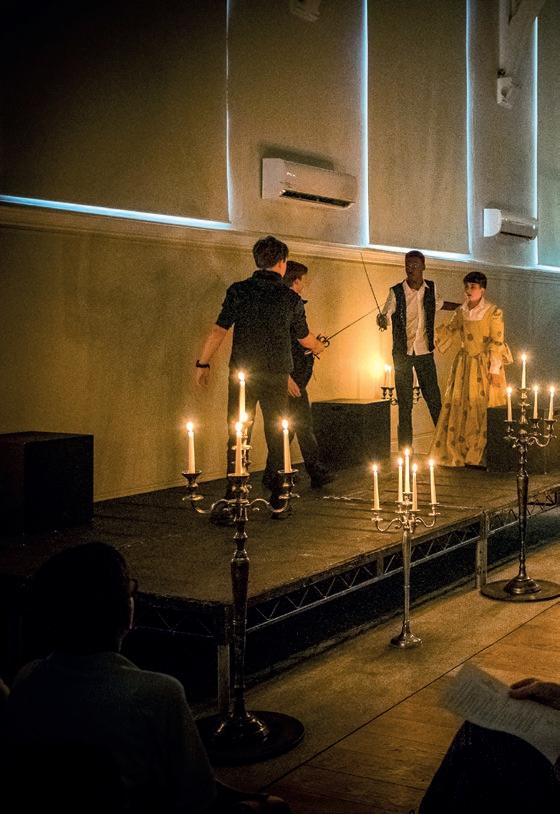
2 minute read
ENGLISH
The Novi English curriculum encourages the boys to develop critical thinking skills, improves reading and writing skills, enhances cultural literacy, provides exposure to different genres and fosters creativity.
In the Michaelmas Term, the Novi study either a collection of short stories, a novel or a modern play. Boys learn to evaluate and analyse themes, characters and literary devices, which helps them to develop a more sophisticated understanding about the world around them.
In the Lent Term, boys study a Shakespeare play. Shakespeare is one of the most important figures in English Literature and his work can help boys to understand and appreciate the cultural and historical context of different periods and societies.
By analysing Shakespeare’s writing, boys can learn to evaluate and interpret texts, and to form their own opinions about literature. Finally, in the Summer Term, the Novi choose a scene from the play they have studied to perform to parents and peers by candlelight. The study of Shakespeare inspires creativity and encourages boys to think imaginatively about their own story-telling.
Also in the Summer Term, the Novi begin their study of the IGCSE Literature Anthology. The boys study ‘Childhood’ poems and also look at essential skills for answering an ‘Unseen’ poetry question.
The study of poetry is an important module for the IGCSE and provides the boys with further opportunities to develop their empathy and understanding of the human experience.

Geography
As a society we have never been more aware of the importance of understanding the interactions between earth systems (physical geography) and human activity (human geography). From real-world problems such as climate crisis, energy security, social inequality or challenges around migration and national identity, geographers are trying to understand the issues and seek practical solutions.
The aim of the Novi Geography course is to give boys an insight into what the subject has to offer at IGCSE, A-level and beyond through studying a wide range of topics of relevance to current affairs and their lives.

All boys study ‘Protest’ and ‘Mass Movements’ in the Michaelmas Term. The protest work focuses on the geographically important idea of ‘sense of place’ and why place matters to people who wish to influence political or social change through protests. Avalanches form the main focus of the work on mass movements, which introduces boys to more rigorously scientific analysis of natural hazards, focusing on the processes that create them, the statistical methods for predicting them and the strategies that can potentially be used to limit their impact.
These topics are then tested in the end of term exam, which is based on the IGCSE exam and requires boys to respond as geographers to stimulus material provided in the paper. After this, each set is introduced to topics of their teacher’s own choosing for the rest of the course. Subjects covered include epidemiology, bush fires, Hans Rosling’s ‘Factfulness, and how the world is better than we think’, the concept of geological time, social inequality, tornadoes, sport-washing and map work.









